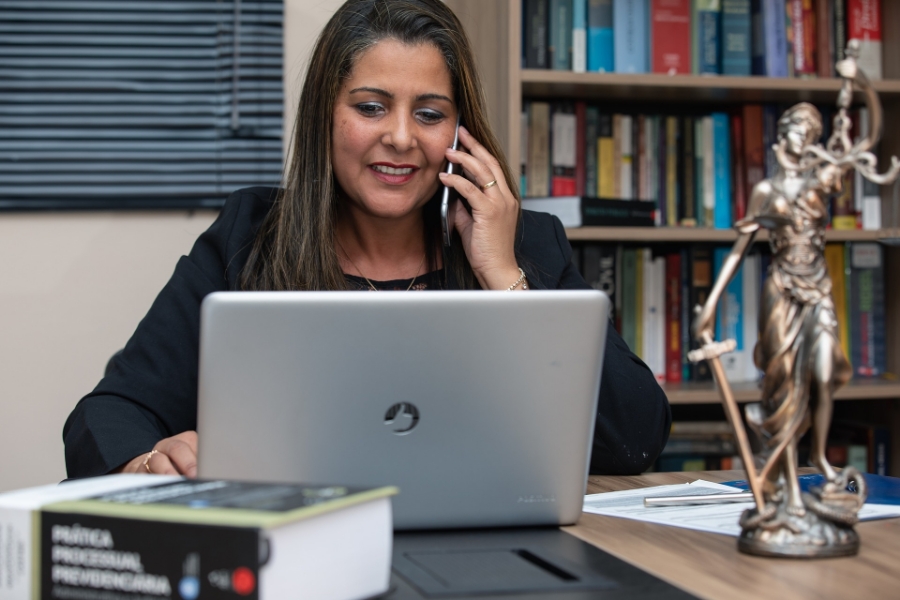
How can you find professional legal and financial advisors that are a good fit with your business?
Many SMEs struggle with this question, particularly those that have limited resources to pay for lawyers, accountants, insurance brokers and the like. Here are some good tips you can follow to help you find the best - but not necessarily the priciest - professionals to work with you to grow, nurture and protect your business.
1. Referrals are the best way of finding a good professional advisor.
Your current advisors will have a network of people they can refer you to. Bankers are also a good source of referrals. They probably have a database of professionals in your community and have probably done business with many of them. Ask these people who they use for various services and if they would refer your company. You can also ask for referrals from businesses with which you have a relationship (vendors, suppliers, etc.).
2. Do some research.
Do an online search for professionals in your local area. Check out their websites to see what services they provide, who is on their team and what their professional qualifications are. Remember that good professionals belong to professional organizations. These organizations can provide you with lists of members who have the expertise you are looking for.
Look for reviews and comments on sites like Trustpilot and Better Business Bureau.
3. Narrow your search to several options and then interview your prospects.
You wouldn't hire a senior sales person or CFO without personally interviewing several qualified candidates for the position. You should choose your professional advisors the same way. The good ones - the busy, successful ones - will understand why you want to go through the process, and they will be confident in their ability to meet your needs.
Your first meeting should take place at their place of business. You can learn a lot about a person, and a firm, by seeing where and how they work. A second interview (if it takes place) should be at your place of business. You can learn a lot about them by seeing how they react to your workplace environment, through the questions they ask and the observations they make. Alternatively, if they are not comfortable or unwilling to meet you at your workplace, you may not be able to count on them to be there when you really need them.
4. Read anything they have written.
Check out their brochures, websites, blog posts, and articles they have contributed to other websites or industry publications. Determine which topics they have expertise in, what issues are important to them, the audience they are addressing with these materials, and the clarity and quality of the writing. Look for advisors who have published things you can understand and use.
Managing the Relationship
Finding a good professional advisor is only the first step. Now you need to build and maintain a relationship. There are some basic things you can do to manage the relationship in order to make sure both parties reap the maximum benefits from the association.
5. Treat them like you want to be treated, with trust and respect.
This should go without saying, but clients sometimes forget that the mere fact that they're paying for the services they receive isn't enough to make the relationship run smoothly. Mutual trust, respect, fairness, honesty and openness is the basis for a solid long-term relationship, whether in business or personal affairs. Be careful not to over-use them by calling them in for insignificant or trivial reasons. Remember that they have other clients. Use their services wisely.
6. Keep your advisors informed with the important things that are happening in your life.
If you have big plans to grow or change the business, or if you have upcoming events in your personal life which could impact your ability to continue to operate the business, you need to update your advisors. They cannot help you if they don't know what is going on as far in advance as possible or, if after the fact, as soon as possible.
7. Be frank and honest.
Your advisors need to know the whole picture, warts and all, if they are going to give you the best advice; and if they truly value integrity, they will not want to represent you if you are less than honest and forthright with them. Do not hide, disguise or attempt to whitewash any problems. These people are here to help you deal with problems.
8. Pay them fairly, on a timely basis.
Your professional advisors are not your partners. They should be motivated to help you make money, but they do not share in your great successes, therefore you should not ask them to share in your losses and mistakes. If they provide quality advice and good service, then you should respect their business needs by paying them their fair rates and fees on time. On the other hand, be sure to tell them if you have a problem with their advice, services or fees. Work it out with them.
Concluding Thoughts
While ultimately you will be responsible for your own success, choosing the right professional advisors can save you lots of heartache, trouble, time and money. They are an essential part of the picture for all successful owner-managers. Never underestimate the value of good professional advisors and what they can contribute to your business. You can rest assured your competitors are not making that mistake.
Image by LEANDRO AGUILAR from Pixabay


